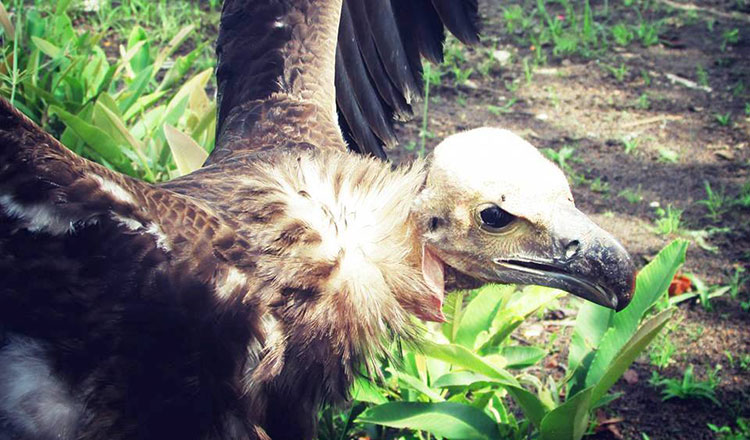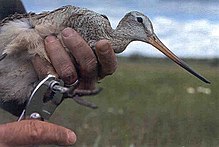SCIENCE-ORNITHOLOGY: September 1, International Vulture Awareness Day
A vulture in Preah Vihear province during the Kingdom’s first celebration of International Vulture Awareness Day in 2015. KT/Taing Vida
This year´s International Vulture Awareness Day is on Saturday September 1. The aim is for each participating organization to carry out individual activities that highlight vulture conservation. These activities also bring the awareness of the conservation of vultures to a wider audience and highlight the important work being carried out by the Cambodia Vulture Working Group.
Cambodia’s vultures play an important role in maintaining the environment by stripping the carcasses of dead animals, which helps to reduce the spread of disease. They are nature’s clean-up crew.
They can generate sustainable income for local communities through ecotourism , but the species is facing an increasingly high risk of extinction, according to the Cambodia Vulture Working Group.
“Northern Cambodia is the only place in Southeast Asia where vultures can still be found in large numbers. Tourists come to see them at our vulture restaurant at Dong Phlet in Chhep Wildlife Sanctuary,” says Simon Mahood, Wildlife Conservation Society’s senior technical advisor.
But over the past five years, the number of vultures in the wild has dramatically decreased due primarily to a lack of available prey, but the pharmaceuticals in cattle also play a role.
Mr. Seng Teak, WWF’s country director, noted that “The low numbers recorded this year, and the 50percent decline in Cambodia’s vulture population since 2000 is an alarming trend. We must increase our efforts to address the causes of this decline, otherwise this important and rare bird species will disappear from the only place in Southeast Asia where we can still see them.”
Taing Vida / Khmer Times
TRIVIA:
Ornithology
Jump to navigationJump to search
A collection of bird skins
Ornithology is a branch of zoology that concerns the study of birds. Several aspects of ornithology differ from related disciplines, due partly to the high visibility and the aesthetic appeal of birds.[1] Most marked among these is the extent of studies undertaken by amateurs working within the parameters of strict scientific methodology.
The science of ornithology has a long history and studies on birds have helped develop several key concepts in evolution, behaviour and ecology such as the definition of species, the process of speciation, instinct, learning, ecological niches, guilds, island biogeography, phylogeography, and conservation. While early ornithology was principally concerned with descriptions and distributions of species, ornithologists today seek answers to very specific questions, often using birds as models to test hypotheses or predictions based on theories. Most modern biological theories apply across taxonomic groups, and the number of professional scientists who identify themselves as “ornithologists” has therefore declined.[3] A wide range of tools and techniques is used in ornithology, both inside the laboratory and out in the field, and innovations are constantly made.
..
 All photographs, news, editorials, opinions, information, data, others have been taken from the Internet..aseanews.net | [email protected] / For comments, Email to : Aseanews.Net | [email protected]
All photographs, news, editorials, opinions, information, data, others have been taken from the Internet..aseanews.net | [email protected] / For comments, Email to : Aseanews.Net | [email protected]















